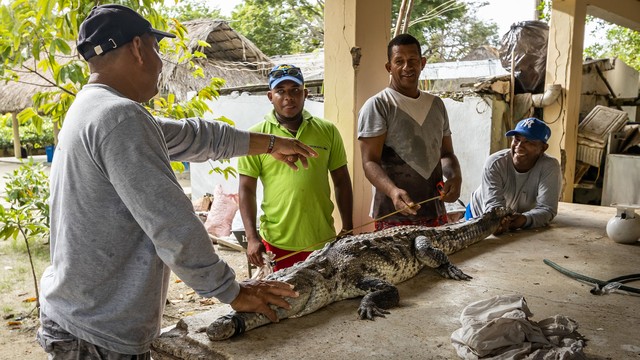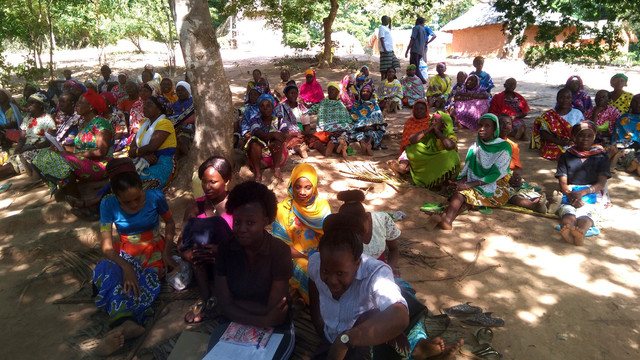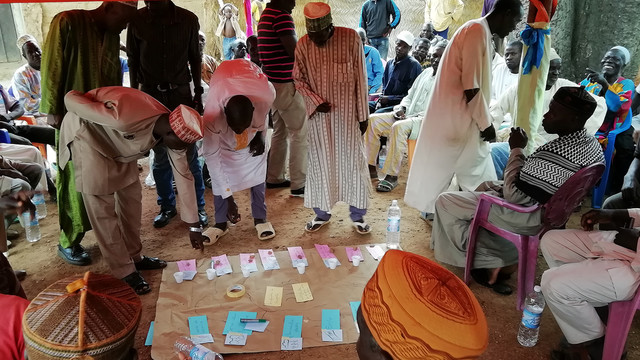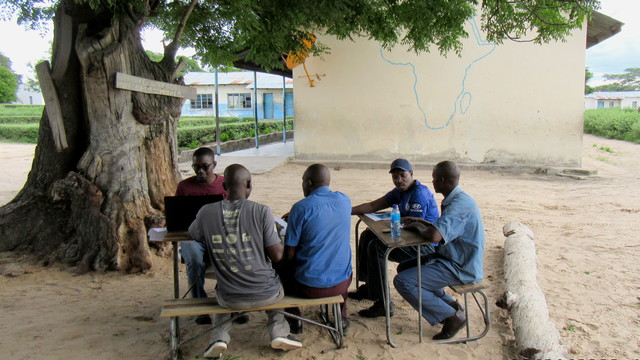Enhancing governance of community-based natural resource management in Zambia
Governance of community-managed protected areas in Zambia is on the decline. IIED, together with Zambia CBNRM Forum, will support stakeholders of six community-managed protected areas to improve their governance and share lessons across the eastern and southern Africa region.

Woman farming in the development zone of Mulobezi Game Management Area, Zambia (Photo: Phil Franks, IIED)
In Zambia, Game Management Areas (GMAs) are protected areas that are co-managed by communities in partnership with the government. They make up more than 70% of the total protected area in the country.
Over the last decade, governance of GMAs has been in decline, reflected in an increased rate of habitat loss, land disputes and declining wildlife populations. This has serious consequences for conservation in Zambia.
This project will support key stakeholders to identify and address key governance challenges at six GMAs, including issues related to benefit sharing, accountability, rights recognition, participation in decision-making, gender equality, transparency and information sharing, and law enforcement.
The project is also designed to have a wider impact on governance of protected areas within Zambia as well as across the eastern and southern Africa region that are using a community-based natural resource management (CBNRM) approach.
Improved governance will lead to more effective and equitable management of the protected areas and associated benefit flows to local communities, which in turn will enhance local livelihoods and wellbeing and improve the health of the ecosystem and its wildlife populations.
In some respects, the project may deliver more for wellbeing than typical alternative livelihood interventions since governance interventions contribute to non-material aspects of human wellbeing – for example dignity, voice, security, social capital – and generally cost less than alternative livelihood interventions.
What will IIED do?
Zambia CBNRM Forum, with technical support from IIED, will facilitate activities that:
- Enhance governance through assessments for deeper analysis of governance challenges and by identifying site-specific actions.
Stakeholders and rights holders will conduct these assessments using a series of methodologies, including IIED’s Governance Assessment for Protected and Conserved Areas (GAPA) and Site-level Assessment of Governance and Equity (SAGE).
These assessments will be followed by stakeholder action planning workshops, communicating assessment results and action plans, implementing specific priority actions, peer-to-peer exchanges with other GMAs, regular monitoring of progress, and governance capacity building for CBNRM based on needs assessments.
- Share lessons on strengthening CBNRM governance within Zambia and more widely across eastern and southern Africa, with substantial capacity building in assessing governance.
This will include establishing and facilitating a CBNRM governance strengthening learning group, the publication of a report on governance assessment for CBNRM, a policy briefing on why governance should be at the heart of conservation, a guidebook for strengthening CBNRM governance and presentations of project lessons on improving governance in CBNRM at relevant national, regional and global events.
Additional resources
BIOPAMA programme project page
Governance Assessment for Protected and Conserved Areas (GAPA). Methodology manual for GAPA facilitators, Francesca Booker, Phil Franks (2019), Toolkit
Partners
Donors
With the financial support of the European Union and the Organisation of African, Caribbean and Pacific States through the Biodiversity and Protected Areas Management programme (BIOPAMA)






